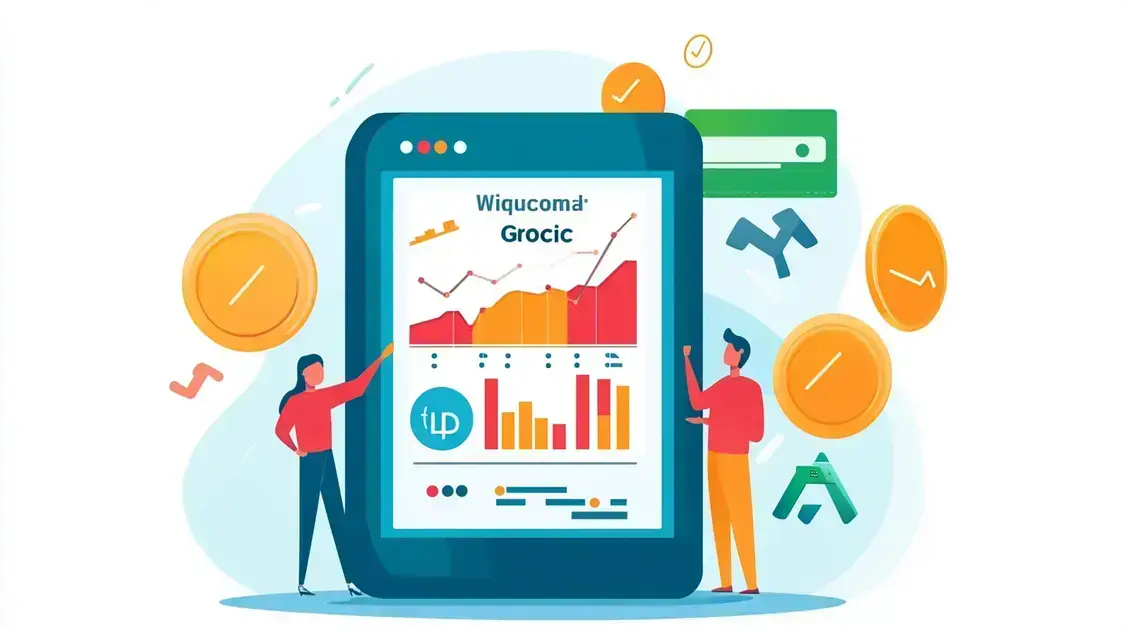Improving your credit score can boost your financial options. Credit Score Improvement helps you qualify for better loan terms and lower interest rates, giving you more flexibility.
To see real Credit Score Improvement, focus on key factors like payment history and credit usage. Small changes in these areas can lead to steady progress.
Learn how to take action today. With the right habits, Credit Score Improvement is within reach—keep reading to find out how.
Understanding Credit Scores
A credit score is a numerical representation of your creditworthiness. It helps lenders assess the risk of lending you money. Scores typically range from 300 to 850; the higher your score, the better your credit position. Understanding how your score is calculated can empower you to improve it.
Factors Influencing Your Credit Score
Several key factors contribute to your credit score:
- Payment History: Consistently paying bills on time boosts your score.
- Credit Utilisation: This ratio reflects how much credit you are using compared to your total available credit. Aim to keep it below 30%.
- Length of Credit History: A longer credit history indicates reliability, improving your score.
- Types of Credit: Having a mix of credit types (credit cards, instalment loans) can positively impact your score.
- New Credit: Frequently applying for new credit can lower your score temporarily.
By focusing on these factors, you can take charge of your financial future with effective credit score improvement strategies.
How to Improve Your Credit Score

Improving your credit score is essential for financial freedom. Here are some practical steps to elevate your score:
1. Pay Your Bills on Time
Your payment history accounts for a significant portion of your score. Ensure you always pay bills by their due dates. Set reminders or automate payments to avoid late fees.
2. Reduce Credit Utilisation
Keep your credit utilisation below 30%. Calculate it by dividing your total credit card balances by your total credit limit. Paying down existing debt can help improve this ratio.
3. Maintain Older Accounts
Length of credit history matters. Keep older credit accounts open, even if you don’t use them frequently. This helps establish a longer credit history and can improve your score.
4. Diversify Your Credit Types
Having a variety of credit types, such as credit cards, personal loans, and housing loans, demonstrates your ability to manage different kinds of credit. However, only take on debt you can manage.
5. Limit New Credit Applications
Each time you apply for credit, a hard inquiry is made, which can lower your score. Try to only apply for new credit when necessary, and aim for pre-approval for a soft inquiry.
6. Regularly Check Your Credit Report
Review your credit report at least once a year for inaccuracies. If you find any errors, dispute them immediately. Correcting mistakes can lead to a higher score.
By following these strategies, you can take concrete steps towards credit score improvement, unlocking better financial opportunities for your future.
Common Myths About Credit Scores
Many people have misconceptions about credit scores. Understanding these myths can help you better manage your finances. Here are some of the most common myths:
1. Checking Your Own Credit Score Hurts It
This is false. When you check your own credit score, it is considered a soft inquiry and does not affect your score. Regularly monitoring your score is a smart way to stay informed.
2. A Credit Score of 850 is Necessary for the Best Rates
While an 850 score is excellent, scores of 700 and above typically qualify for the best interest rates. Aim for progress rather than perfection.
3. Closing Old Credit Accounts Improves Your Score
Closing old accounts can actually hurt your score. Longer credit history is beneficial, so keep these accounts open even if you rarely use them.
4. All Debts Impact Your Score Equally
Not all debts are treated the same. Different types of credit, like instalment loans versus revolving credit, can impact your score differently. Understanding this can aid in managing your credit wisely.
5. Paying Off a Debt Immediately Removes It from Your Report
This is misleading. While paying off a debt is important, it may still remain on your credit report for several years. Its impact will lessen over time if managed well.
6. Rent Payments Do Not Affect Your Credit Score
While rent payments typically do not show up automatically on credit reports, some services allow you to report your rent payments. This can positively affect your score.
By busting these myths, you can make informed decisions about your finances and work towards credit score improvement. Knowledge is power in achieving your financial goals.
The Importance of Payment History

Payment history is the most significant factor affecting your credit score, making up around 35% of the total score. It reflects how reliably you pay your bills and manage debts. Here are key points to understand its importance:
1. On-Time Payments Boost Your Score
Paying your bills on time demonstrates to lenders that you are responsible with your credit. Consistency in on-time payments builds a positive payment history, which can greatly enhance your score.
2. Late Payments Can Be Costly
Missing a payment can seriously harm your credit score. Even one late payment can stay on your credit report for up to seven years. Being late can increase your interest rates for future loans as well.
3. The Role of Payment Types
Diversity in your payment types (like credit cards, loans, and instalments) can also influence your score. It shows lenders that you can handle various forms of credit responsibly.
4. Impact of Delinquency
Accounts sent to collections, bankruptcies, or foreclosures can have a devastating effect on your payment history. These events can substantially lower your score and remain on your credit report for several years.
5. Importance of Monitoring Your Payments
Regularly check your payment history to ensure all payments are recorded correctly. Disputing erroneous information may help you retain or improve your score.
By understanding the importance of payment history, you can take necessary actions to maintain a good credit score and improve your chances of achieving financial goals.
Using Credit Responsibly
Credit Score Improvement starts with smart credit habits. Only borrow what fits your budget and include payments in your monthly plan. These steps help avoid debt and keep your payment history strong.
Keeping card balances low and avoiding impulse buys also support Credit Score Improvement. Regularly check your credit reports to catch errors or suspicious activity that could damage your score.
Finally, always read the terms of your credit agreements. Avoid surprises like hidden fees and rising interest. With focus and consistency, Credit Score Improvement can lead to better financial opportunities.
Monitoring Your Credit Progress

Monitoring your credit progress is a crucial step in managing your financial health. Regularly checking your credit can help you stay informed and make improvements. Here are some essential points to consider:
1. Check Your Credit Reports Regularly
Obtain a free copy of your credit report from major credit bureaus at least once a year. This helps you understand your credit status and spot any inaccuracies.
2. Use Credit Monitoring Services
Consider subscribing to a credit monitoring service. These services can alert you to changes in your credit report, helping you respond quickly to any negative changes.
3. Track Your Credit Score Over Time
Monitor your credit score regularly. Many banks and credit cards offer free access to your score. Tracking it helps you see how your strategies for credit score improvement are working.
4. Understand What Influences Your Score
Familiarise yourself with factors that influence your credit score, such as payment history, credit utilisation, and types of credit. This knowledge allows you to focus on areas needing improvement.
5. Set Goals for Improvement
Establish specific, achievable goals for enhancing your score. Whether it’s paying down debt or making timely payments, goals can keep you motivated.
6. Review Changes and Adjust Strategies
After monitoring your progress, review any changes in your credit report and adjust your strategies accordingly. Learning from your progress can lead to better financial decisions.
By actively monitoring your credit progress, you can take informed steps towards achieving your financial objectives and maintaining a healthy credit score.
Empowering Your Financial Future Through Credit Score Improvement
Improving your credit score is not just about numbers; it’s about creating opportunities for your financial future. By understanding the crucial factors that affect your score, debunking common myths, and using credit responsibly, you can work towards a healthier financial life.
Regularly monitoring your credit progress allows you to make informed decisions and adjustments along the way. With time and effort, you can unlock financial freedom and secure better terms on loans, credit cards, and more.
Ultimately, the journey to credit score improvement is a pathway to greater financial stability and success, opening doors to the life you aspire to lead.
Check out our article on Make Money Online to discover practical ways to earn income from the comfort of your home.
